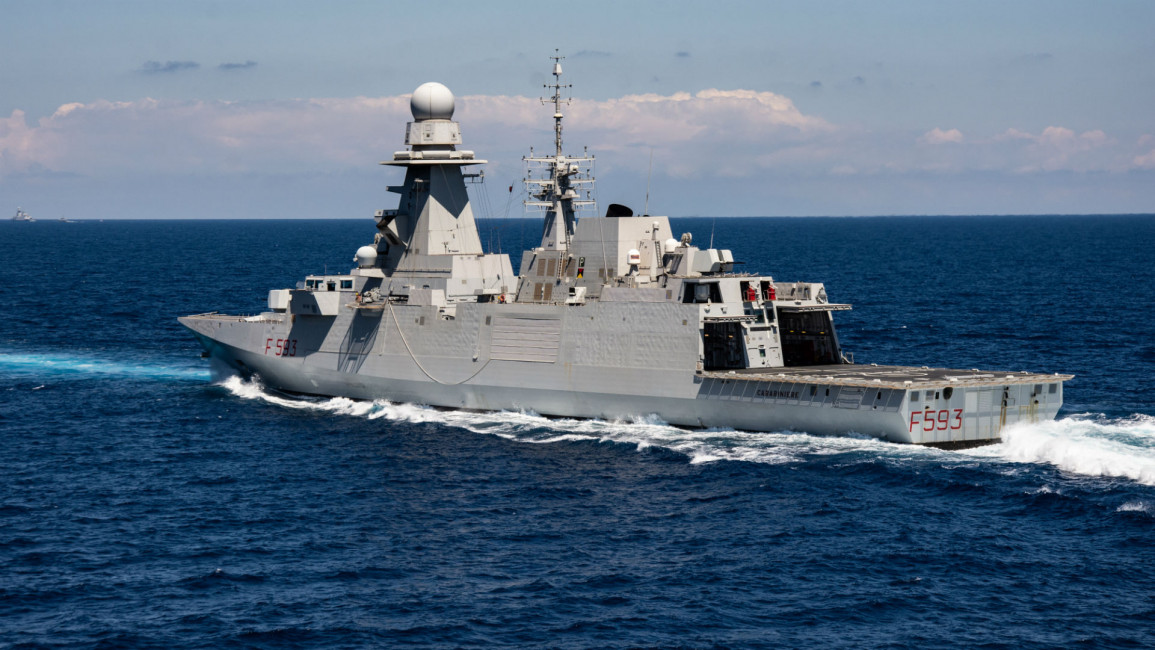Greece, Cyprus seek tougher EU stand on East Mediterranean dispute
Cyprus and Greece on Tuesday urged the European Union to take a tougher stance against Turkey’s tension-ratcheting activity in the eastern Mediterranean.
Greek Foreign Minister Nikos Dendias made an unscheduled trip to Nicosia to coordinate policy among the two EU allies, as a crisis brews after Turkey sent naval ships into disputed waters.
Dendias met his Cypriot counterpart Nikos Christodoulides and President Nicos Anastasiades.
Nicosia and Athens seek a tougher stance from Brussels as they argue that Turkey has violated their sovereignty as well as that of the EU.
"The escalation of Turkish aggression" is directed at the EU, Dendias told a news conference.
"Turkish provocations show contempt for the clear positions of the EU, the US… contempt for European values, international law… and constitute unacceptable militarisation," he said after meeting his Cypriot counterpart.
He accused Turkey of playing a "destabilising role" in the region.
"For a long time, Cyprus and Greece have pointed out that the appeasement of Mr Erdogan would result in an unprecedented escalation of Turkey's delinquent behaviour," Christodoulides said, referring to Turkish President Recep Tayyip Erdogan.
Tensions were stoked last week when Ankara dispatched a research ship, Oruc Reis, accompanied by Turkish naval vessels off the Greek island of Kastellorizo.
Greece also deployed warships to monitor the vessels.
The mood has soured since Greece and Egypt signed an agreement on August 6 to set up an Exclusive Economic Zone (EEZ) in the eastern Mediterranean.
Turkish Foreign Minister Mevlut Cavusoglu has said his country would step up energy exploration and not "compromise" on its rights.
Ankara has also sent a drillship into waters that Cyprus has designated as its EEZ for gas exploration licensed to US, French and Italian energy companies.
France has "temporarily reinforced" its military presence in the eastern Mediterranean in support of Greece and Cyprus.
A French navy frigate could be seen off southern Cyprus on Tuesday.
The search for oil and gas has long been a source of tension between NATO allies Greece and Turkey.
Ankara paused its operations off a Greek island last month, saying it wanted to see how talks with Greece and Germany progressed.
But Erdogan has announced a resumption of the search for energy, accusing Greece of reneging on its promises.
Turkey was incensed by the Egypt-Greece deal, branding it "null and void".
Ankara signed its own controversial agreement last year with Libya's UN-recognised government, claiming extensive areas of the Mediterranean for Turkey.
Egypt, Cyprus and Greece have likewise condemned the deal as well as a security agreement signed last year by Ankara and the Tripoli-based government.
On Friday, EU foreign ministers expressed "full solidarity" with Greece and Cyprus,urging an "immediate de-escalation" as Greek and Turkish ships shadowed each other.
But Ankara announced that another drillship, the Yavuz, would be conducting a month-long hydrocarbons search off Cyprus.
Follow us on Facebook, Twitter and Instagram to stay connected



